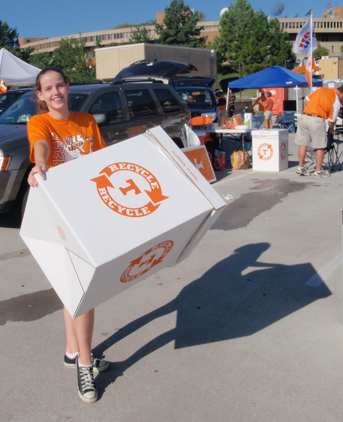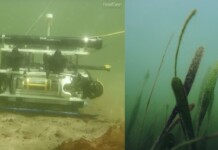 The University of Tennessee is claiming a big victory this football season, no matter what scoring takes place on the field.
The University of Tennessee is claiming a big victory this football season, no matter what scoring takes place on the field.
Last year, UT Recycling, the campus crew in charge of recycling, collected 35 tons of cans, bottles, plastic and paper during the football season. But this year, with 500 recycling bins in tailgate areas alone, up from 125 last year, the effort is on track to redirect a record 50 tons of material that would otherwise end up in landfills.
Yesterday, as UT Knoxville’s football team battled the University of Alabama, UT Recycling battled a slate of schools in the EPA Game Day Recycling Challenge in which universities fight to see who recycles the most.
Jay Price, the school’s environmental coordinator said they would be “upping the ante” by composting leftover food and putting out even more than the 925 recycling bins used around campus last week.
UT Recycling set a record at the Florida game weeks ago by collecting eight tons of trash in a single day, as part of the university’s Make Orange Green environmental initiative.
“Fans are really starting to get into recycling. They’re seeing more bins in more places and really starting to use them. They’re understanding that recycling should be a part of their tailgate parties, and a part of their game day tradition,” said Price.
“We are getting better at what we are doing. We are getting more strategic about where we put bins so people don’t have a choice but to recycle,” said Price. “I have some great staff that keep pushing harder and harder each game to get as many aluminum cans and plastic bottles, plastic cups, cardboard and paper as possible.”
While Price hopes to win the Game Day Recycling Challenge and meet the 50 tons of material goal, his recycling aspirations don’t stop there.
“For the future, we’d like to target food waste from the stadium for composting in our new compost pile on campus. We also hope to be able to get more staff and more bins to push this even further. There’s a lot of material that we’re still missing, but we’re doing a pretty amazing job with the limited resources we have,” he said.
(Source: UT Knoxville, www.utk.edu)



















